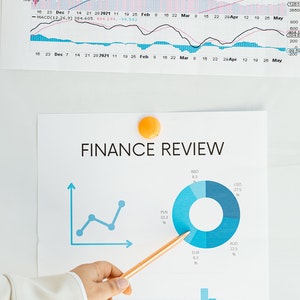Forex trading has undergone significant transformations over the years, driven by technological advancements, changes in global financial landscapes, and evolving trader preferences. As one of the largest and most liquid financial markets, the forex market continuously adapts to meet the needs of traders worldwide. In the UK, forex trading has gained popularity among retail and institutional investors, and the future promises a host of trends and opportunities.
This article will explore the future of forex trading in the UK, focusing on emerging trends, technological innovations, regulatory developments, and potential opportunities. Understanding these factors will help traders prepare for the challenges and capitalise on the evolving landscape of the forex market.
Technological innovations in forex trading
Technology has been a driving force behind the evolution of forex trading, making it more accessible, efficient, and responsive to market conditions. The rise of online trading platforms and mobile applications has democratised the market, allowing individuals to participate in forex trading from the comfort of their homes.
Artificial Intelligence (AI) and machine learning algorithms are increasingly prevalent in the forex market. These technologies can analyse real-time data and identify trading opportunities based on complex patterns and historical trends. AI-driven trading strategies, such as algorithmic and high-frequency trading, reshape how trades are executed and enhance trading efficiency.
Automation tools are gaining traction among traders, allowing them to set predefined parameters for executing trades and managing risk. Automated trading systems can execute trades without human intervention, reducing the impact of emotions on trading decisions and improving overall consistency.
As technology evolves, traders can expect even more sophisticated tools and platforms that enable them to access market data, execute trades, and manage their portfolios more efficiently.
The impact of regulatory development
Regulatory developments are crucial in shaping the future of forex trading UK. Regulators aim to protect traders and maintain market integrity, which requires constant vigilance in an ever-changing financial landscape.
The UK’s Financial Conduct Authority (FCA) overseas forex brokers and ensures they adhere to strict regulations. One of the significant regulatory changes in recent years is the implementation of the European Securities and Markets Authority (ESMA) regulations, which include measures to limit leverage and increase client protection.
While regulations may impose certain restrictions on trading practices, they also give traders a sense of security and confidence in the market. Transparent and well-regulated markets are essential for attracting new traders and fostering long-term growth in the industry.
In the future, traders can expect further advancements in regulatory frameworks to address emerging challenges, such as the rise of cryptocurrencies and other digital assets that are increasingly being incorporated into the forex market.
Navigating geopolitical uncertainties
Geopolitical events profoundly impact the forex market, leading to market volatility and affecting currency values. As the world becomes more interconnected, geopolitical uncertainties have become a recurring theme, influencing trading strategies and risk management approaches.
For example, Brexit significantly impacted the UK economy and the value of the British Pound. Traders had to navigate through uncertainties surrounding trade agreements and economic implications during the negotiation process.
In the future, geopolitical events such as elections, trade disputes, and global economic crises will continue influencing forex trading. Traders need to stay informed about world events and be prepared to adjust their strategies accordingly. Diversification and risk management will be critical in mitigating the potential impact of geopolitical uncertainties on their trading portfolios.
Embracing the rise of sustainable investing
Sustainable investing, also known as ESG (Environmental, Social, and Governance), has gained traction in the financial markets, including forex trading. Investors increasingly seek to align their trading activities with values and support companies with strong environmental and social practices.
In response to this growing demand, forex brokers and trading platforms offer sustainable investment products focusing on companies with high ESG ratings. Traders who embrace sustainable investing can align their trading strategies with their ethical beliefs and contribute to positive societal and environmental outcomes.
With that said
The future of forex trading in the UK holds exciting prospects for traders. Technological innovations will continue to shape the industry, providing traders with advanced tools and platforms to optimise their trading activities. Regulatory developments will ensure a well-regulated and transparent market that fosters trader confidence and protection.
As geopolitical uncertainties persist, traders must remain adaptable and agile in their strategies to successfully navigate market volatility. Embracing sustainable investing allows traders to align their trading activities with their values and contribute to positive change.
By staying informed about emerging trends and opportunities, traders can position themselves for success in the UK’s dynamic and ever-evolving world of forex trading. With diligence, discipline, and a commitment to continuous learning, traders can seize potential opportunities in the forex market.



